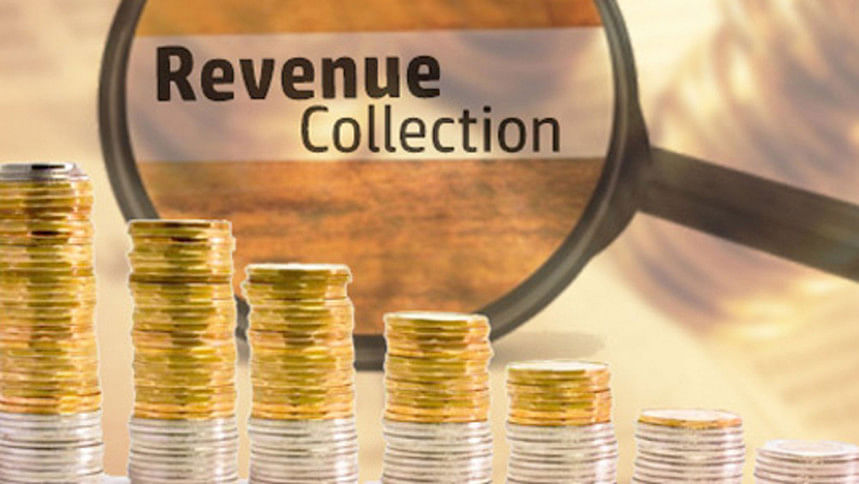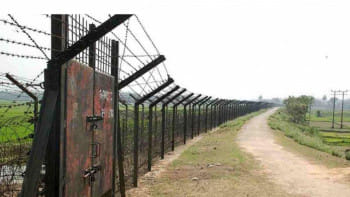Revenue collection growth slows

The revenue collection growth decelerated to 12.63 per cent in Bangladesh in the first quarter of the current fiscal year, driven by the cost-of-living crisis at home and abroad, narrowing the fiscal space for the government, official figures showed.
It was much lower than the 21 per cent growth recorded by the National Board of Revenue (NBR) in the first two months of 2022-23.
The NBR collected Tk 65,737 crore in the forms of income tax, value-added tax (VAT) and customs tariffs between July and September, according to the provisional data of the tax administration.
Revenue collection went up by 16.75 per cent to Tk 58,368 crore during the same three-month period in the previous fiscal year.
A senior official of the NBR said the slow growth could be a seasonal effect caused by the lean economic activity in September.
The lower revenue collection is the latest indicator that painted the grim economic scenario of Bangladesh as well as other parts of the world.
Bangladesh's export earnings and remittance inflow both saw a drop in September.
Export earnings slipped 6.25 per cent year-on-year to $3.9 billion in September, the first fall in 14 months, as runaway inflation in the western countries took its toll on Bangladesh's main foreign currency earning sector.
Last month, consumer prices rose 8.2 per cent in the US and 10 per cent in the eurozone, the two biggest markets for the country.
Similarly, remittances declined 11 per cent to $1.54 billion in September, the lowest in seven months, despite a surge in the outflow of migrant workers.
The revenue collection in the July-September quarter was 92.25 per cent of the Tk 71,256 crore target set for the NBR during the period.
Receipts from customs tariffs grew the highest 16.44 per cent to Tk 22,433 crore. It was Tk 19,266 crore during the same quarter of FY22, NBR data showed.
The higher growth was largely caused by the escalated costs of commodities in the global markets and the sharp depreciation of the local currency against the US dollar amid the Russia-Ukraine war.
Income tax collection rose 11.55 per cent to Tk 20,087 crore in the July-September quarter, up from Tk 18,007 crore in FY22.
However, receipts of VAT saw poor growth, which indicates a decline in the purchasing power of people amid the spiralling costs of commodities.
The collection of VAT, the biggest source of revenue for the government, was up 10.06 per cent to Tk 23,215 crore, against Tk 21,094 crore in the previous year.
In Bangladesh, inflation rose 7.48 per cent in July, 9.5 per cent in August and 9.1 per cent in September.
The collection target for the NBR has been set at Tk 370,000 crore for FY23, which is 12.12 per cent more than Tk 300,000 crore generated in FY22.
A senior official of the NBR, however, said the VAT collection in September would be higher than the provisional level as businesses file related returns by the 15th of the subsequent month.
"We will get the actual picture regarding the VAT collection by October 22. Similarly, the collection from income tax will also increase. So, the overall collection will be higher than the preliminary receipts."
The official said the pace of collection from import tariffs did not increase much as most of the items that were imported had either zero or concessional import duty.
Ahsan H Mansur, executive director of the Policy Research Institute of Bangladesh, said: "The sluggish growth of VAT collection indicates that economic activities are slowing down. The growth in the collection that we see now is because of inflation."
The economist, however, noted that it was too early to reach a conclusion on the basis of preliminary figures.
"But the revenue performance is very poor as 30 per cent growth in tax collection is needed. A big shortfall is looming on the horizon."
The former economist at the International Monetary Fund thinks the government will have to compromise fiscal management because of the current level of revenue collection.
The government has reduced subsidy payment pressure by hiking petroleum prices. But subsidy pressure for fertiliser and for other purposes is deepening.
"At the same time, the government will have to spend for social protection to protect the poor from prices spiral," he said.
According to Mansur, the ultimate solution lies in reforms in the financial and fiscal sectors but the government is not undertaking them.
"The government itself is putting itself in a tight position by not bringing in reforms."
Owing to the lower tax collection, the government's fiscal space has narrowed, he said. "During difficult times, the government needs to spend but it does not have the capacity to do so currently."
Towfiqul Islam Khan, senior research fellow of the Centre for Policy Dialogue, also said fiscal space is critical during the present crisis faced by the economy.
He said the ability of the government to mobilise tax revenue would determine its scope to provide policy support to general people facing the uphill task of surviving amid the higher inflationary pressure.
"The best way for the government is to curb tax evasion, which is rampant in Bangladesh. And, when commodity prices go up, tax evasion also soars, particularly in the area of trade."


 For all latest news, follow The Daily Star's Google News channel.
For all latest news, follow The Daily Star's Google News channel. 



Comments